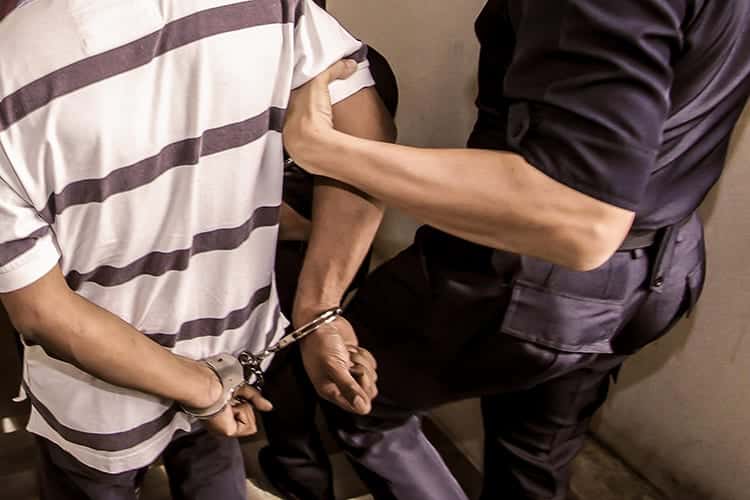
Virginia has finally raised the felony larceny threshold from $200 to $500. The new law goes into effect July 1, 2018. The $200 limit was set in 1980 and had not seen an increase until this year. This meant that individuals who were caught stealing an item or items that were valued at or above $200 could be charged with grand larceny, which is a felony. Although the price of goods has increased over time, the grand larceny threshold remained the same for nearly 40 years. So, an individual who was caught shoplifting relatively small items like a DVD player or pair of sneakers could be charged with a felony, provided the value of those goods exceeded $200. Felonies are serious offenses that include crimes such as robbery, rape, burglary, and even murder. Besides the prison term, a felony conviction brings lifelong permanent adverse consequences. For example, in Virginia convicted felons cannot vote, serve on a jury, run for office, or possess firearms. Further, a felony conviction may exclude an applicant from many employment opportunities.
Two Burnett & Williams lawyers, Seth Lindberg and Matt Bass, both had years of experience in criminal defense before joining the firm to represent plaintiffs in personal injury work. They react below to the new felony larceny threshold:
This year, the Virginia General Assembly rightly (and belatedly) increased the felony threshold. Unfortunately, I’ve seen firsthand numerous individuals charged with grand larceny for shoplifting several relatively inexpensive items. While the Assistant Commonwealth Attorney would often reduce the grand larceny charge to misdemeanor petty larceny, the reduction would come at a price. The defendant would normally have to serve some amount of active jail time, pay court costs, complete a shoplifting class, do community service, and be placed on probation. For those cases where the offense was not reduced to a misdemeanor (for whatever reason), the defendant risked a maximum possible prison term of 20 years and being branded as a convicted felon.
Although the increased threshold removes the possibility of a felony conviction for stealing less expensive items, the defendant can still be sentenced to one year in jail for misdemeanor petit larceny and have to pay a $2,500 fine. I am also disappointed that the General Assembly did not chain the grand larceny threshold to inflation and allow for automatic annual increases. Eventually, the Virginia legislature will need to pass new legislation to raise the felony threshold again. I fully expect to be writing a similar blog post in 25 years when the $500 limit is raised for the first time since 2018.
Nonetheless, the broader question remains how the Commonwealth is best served when addressing crimes that are primarily committed by the poor. Although some may steal for the thrill of it more than out of desperation, larceny offenses are disproportionately committed by those living in poverty. A criminal record reduces one’s chances of obtaining meaningful employment, which in turn fuels poverty, which then stimulates crime.
Matt specifically discusses the opioid crisis, which has spawned a new class of addicts and a large number of new defendants. If the goal is to ultimately reduce crime, and not to punish the poor, addressing the root causes of poverty (addiction, education, and low wages, among other factors) may prove the best way to serve the Commonwealth and her taxpayers.
Matt:
I agree with Seth that an increase in the felony threshold from $200 to $500 is long overdue. In my years as a criminal defense attorney representing many court-appointed clients charged with felony grand larceny, the conversation about the Virginia limit never sat well with defendants, particularly those from out-of-state (where the limit was invariably higher), those with a minor criminal past, and those caught in immigration limbo. Such unfortunate persons were often staring at a felony conviction and its collateral consequences. Seth accurately points out that many prosecutors may be willing to reduce a borderline threshold case to a misdemeanor, but the cost is high. Even a misdemeanant often becomes a spoke in the wheel of the criminal justice system. There are often damaging outcomes for these individuals. They may lose their job because they have to spend time in jail (so they don’t become a convicted felon). They may lose their driver’s license because they can’t pay thousands in court fines, costs, and restitution (because they lost their job). And they may end up back in jail for driving on a suspended license (because they didn’t pay fines, costs, and restitution, but they have to drive to work). It is a vicious cycle for many of those who get caught up in it.
You might be thinking, why should someone who steals ever deserve a break? A deep answer would delve into issues of socioeconomic disparity that are beyond this conversation. But, suffice it to say that many who steal do so for a reason, whether it’s drug-related, money-related, or otherwise. In my experience practicing criminal law, many of my court-appointed clients were not bad people; they simply made poor choices. In more recent years, as the opioid epidemic has exploded over Northern Virginia, the number of criminal defendants facing felony grand larceny charges who also suffer from substance abuse is absolutely stunning. It’s not news that theft and drug use go hand-in-hand. Unfortunately, Virginia’s slow-changing legal system is about as likely to tackle the full complexities surrounding opioid abuse as it is likely to keep the felony threshold tied to inflation.
I’m glad to see the felony larceny limit increased. My hope is that this re-thinking of punishment for larceny represents a larger awakening to the driving factors behind crime. That’s a conversation long overdue for our legislature as well.